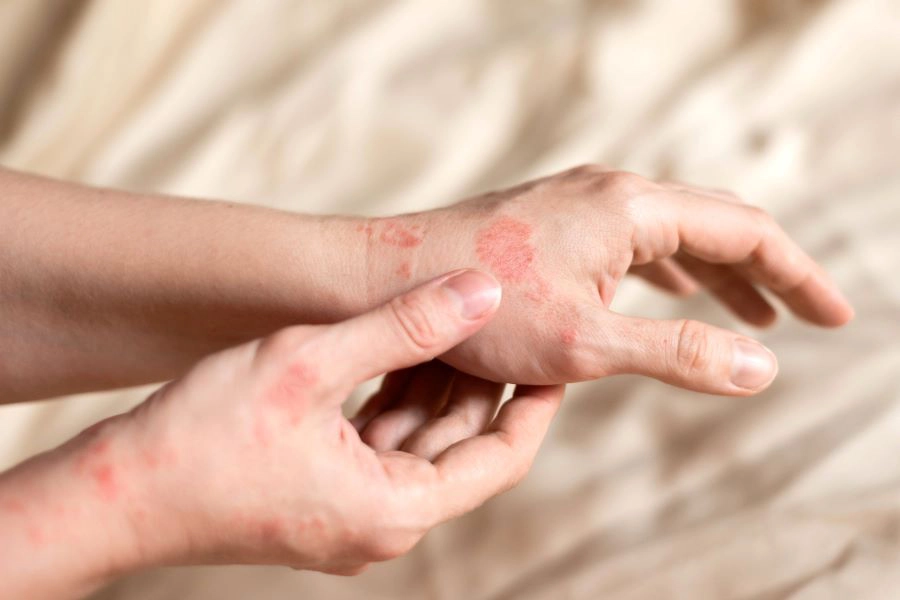A new study finds that a Mediterranean diet may improve psoriasis severity in patients with the skin condition. The researchers suggest that the diet could be an effective therapeutic to help control skin outcomes.
The publication in JAMA Dermatology reported on a randomized clinical trial of 38 adults with mild to moderate psoriasis over 16 weeks.
The researchers highlight a lack of randomized clinical trials testing diet impacts on preventing or treating psoriasis.
Study results
The researchers found that the participants showed a significant reduction in the Psoriasis Area and Severity Index (PASI) compared to the control group, which received advice to consume low-fat foods without dietitian supervision.
In week 16, the PASI difference was −3.4 compared to that of the control group (0). No one in the control group reached a PASI 75% reduction, compared to 47.4% in the Mediterranean diet group.
Those in the Mediterranean diet group received a dietitian-guided program that included nutritional counseling, educational materials, and weekly extra virgin olive oil. The Mediterranean diet is known for its anti-inflammatory and heart-healthy benefits.
Among 45 screened individuals, 38 were randomized into two groups (mean age of 46.4 years; 25 males).
 Mediterranean diet mania
Mediterranean diet mania
People practicing a diet “close to the Mediterranean diet” have a higher chance of better gum health, with potentially lower gum disease and inflammation, according to a recent Kings College London, UK, study.
Another paper linked the green Mediterranean diet to slower brain aging. This involves consuming green tea and the aquatic plant Mankai. Meanwhile, people with the highest genetic risk for Alzheimer’s disease may benefit more from following a Mediterranean-style diet, showing a greater reduction in related dementia risk compared to those at lower genetic risk.
A clinical trial also found that following a Mediterranean diet while eating fewer calories, doing moderate exercise, and adhering to professional support for weight loss can lower type 2 diabetes risk by 31%.


Dining and Cooking